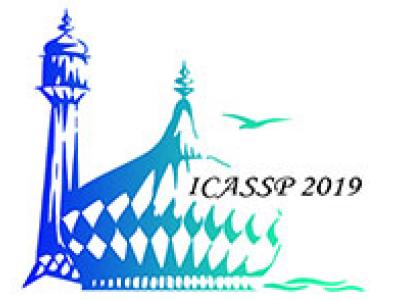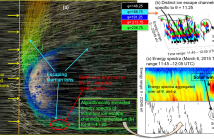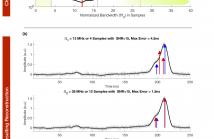
ICASSP is the world’s largest and most comprehensive technical conference focused on signal processing and its applications. The 2019 conference will feature world-class presentations by internationally renowned speakers, cutting-edge session topics and provide a fantastic opportunity to network with like-minded professionals from around the world. Visit website.

- Read more about Solving Continuous-Domain Inverse Problems Exactly with B-splines
- Log in to post comments
- Categories:
 22 Views
22 Views
The performance of Automatic Speech Recognition (ASR) systems is often measured using Word Error Rates (WER) which requires time-consuming and expensive manually transcribed data. In this paper, we use state-of-the-art ASR systems based on Deep Neural Networks (DNN) and propose a novel framework which uses ``Dropout'' at the test time to model uncertainty in prediction hypotheses. We systematically exploit this uncertainty to estimate WER without the need for explicit transcriptions.
- Categories:
 55 Views
55 Views
- Read more about Adaptive Scenario Discovery for Crowd Counting
- Log in to post comments
Crowd counting, i.e., estimation number of the pedestrian in crowd images, is emerging as an important research problem
with the public security applications. A key component for the crowd counting systems is the construction of counting
models which are robust to various scenarios under facts such as camera perspective and physical barriers. In this paper,
we present an adaptive scenario discovery framework for crowd counting. The system is structured with two parallel
- Categories:
 7 Views
7 Views
- Read more about DISJUNCT MATRICES FOR COMPRESSED SENSING
- Log in to post comments
- Categories:
 22 Views
22 Views
- Read more about Diving Deep onto Discriminative Ensemble of Histological Hashing & Class-Specific Manifold Learning for Multi-class Breast Carcinoma Taxonomy
- Log in to post comments
Histopathological images (HI) encrypt resolution dependent heterogeneous textures & diverse color distribution variability, manifesting in micro-structural surface tissue convolutions & inherently high coherency of cancerous cells posing significant challenges to breast cancer (BC) multi-classification.
- Categories:
 319 Views
319 Views
- Read more about MATRIX COMPLETION WITH VARIATIONAL GRAPH AUTOENCODERS: APPLICATION IN HYPERLOCAL AIR QUALITY INFERENCE
- Log in to post comments
Inferring air quality from a limited number of observations is an essential task for monitoring and controlling air pollution. Existing inference methods typically use low spatial resolution data collected by fixed monitoring stations and infer the concentration of air pollutants using additional types of data, e.g., meteorological and traffic information. In this work, we focus on street-level air quality inference by utilizing data collected by mobile stations.
- Categories:
 24 Views
24 Views
- Read more about Improving Content-based Audio Retrieval by Vocal Imitation Feedback
- Log in to post comments
Content-based audio retrieval including query-by-example (QBE) and query-by-vocal imitation (QBV) is useful when search-relevant text labels for the audio are unavailable, or text labels do not sufficiently narrow the search. However, a single query example may not provide sufficient information to ensure the target sound(s) in the database are the most highly ranked. In this paper, we adapt an existing model for generating audio embeddings to create a state-of-the-art similarity measure for audio QBE and QBV.
- Categories:
 20 Views
20 Views
- Read more about Autonomous Detection and Disambiguation of Martian Ion Trails Using Geometric Signal Processing Techniques
- Log in to post comments
We present recently developed computational techniques that exploit spectral geometry of the energy spectra for differential energy flux over MAVEN data sets. The goal is to enable a large scale automated discovery detection of statistical analysis of ion trails in the Martian atmosphere. Specifically, we present a case study across a diverse portfolio of azimuthal (φ) and polar (θ) angles over the same time frame and demonstrate that angular separation helps us to distinguish between individual ion escape processes.
- Categories:
 68 Views
68 Views
- Read more about Rethinking Super-resolution: The Bandwidth Selection Problem
- Log in to post comments
Super-resolution is the art of recovering spikes from their low-pass projections. Over the last decade specifically, several significant advancements linked with mathematical guarantees and recovery algorithms have been made. Most super-resolution algorithms rely on a two-step procedure: deconvolution followed by high-resolution frequency estimation. However, for this to work, exact bandwidth of low-pass filter must be known; an assumption that is central to the mathematical model of super-resolution.
AB_ICASSP 2019.pdf
- Categories:
 62 Views
62 Views